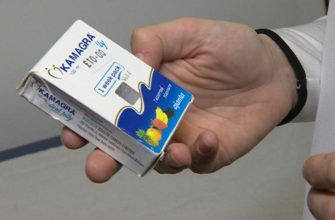Think of Doxycycline Hyclate DR 150 mg tablets as a reliable tool in your health arsenal. They offer a modified-release formula, meaning you get the medication’s benefits steadily over a longer duration. This helps keep the drug levels consistent in your body, potentially reducing side effects often linked with faster-releasing formulations. It’s generally prescribed to tackle bacterial infections, including certain skin issues and respiratory tract illnesses.
Always follow your doctor’s specific instructions for dosage and administration. The delayed-release aspect necessitates swallowing the tablet whole; crushing or chewing it defeats the controlled-release mechanism, altering its intended action. You’ll usually take one tablet daily, but this varies based on the infection type and its severity. Drinking plenty of water while taking this medication is key, as it facilitates absorption and can prevent esophageal irritation.
Consider potential interactions with other medications or supplements you are taking. For example, antacids containing aluminum, calcium, or magnesium can bind to doxycycline, potentially hindering its absorption. Therefore, space out their administration. Similarly, iron supplements may interfere with absorption. Report all current medications and supplements to your doctor to ensure safe and optimal treatment.
- Doxycycline Hyclate DR 150 mg Tab: A Comprehensive Guide
- Possible Side Effects
- Storage and Handling
- What is Doxycycline Hyclate DR 150 mg?
- How to Take Doxycycline DR 150 mg
- Timing is Important
- Things to Avoid
- Common Uses of Doxycycline DR 150 mg.
- Preventative Measures
- Specific Infections
- Possible Side Effects of Doxycycline DR 150 mg.
- Common Side Effects
- Serious Side Effects
- Doxycycline DR 150 mg: Precautions & Warnings
- Special Considerations for Women
- Monitoring and Potential Complications
- Drug Interactions with Doxycycline DR 150 mg.
- Specific Considerations for Isotretinoin
- Food and Dairy
- Storing Doxycycline DR 150 mg Properly
- Special Considerations
Doxycycline Hyclate DR 150 mg Tab: A Comprehensive Guide
Take Doxycycline Hyclate DR 150 mg tablets exactly as your doctor prescribes. This delayed-release formulation is designed to release medication later, potentially reducing stomach upset. Swallow the tablet whole, avoid crushing or chewing it. Crushing can destroy the delayed-release mechanism.
Food affects Doxycycline Hyclate DR 150 mg tab absorption. Take it on an empty stomach, preferably one hour before or two hours after a meal. However, if stomach irritation occurs, taking it with a small amount of food is acceptable. Always consult with your physician first.
Possible Side Effects
Be aware of possible side effects. Common ones include nausea, vomiting, diarrhea, and skin sensitivity to sunlight. Less common, but more serious, side effects involve allergic reactions. Seek immediate medical attention if you experience hives, difficulty breathing, or swelling of your face, lips, tongue, or throat.
Discuss all other medications and supplements you are taking with your doctor. Doxycycline interacts with antacids containing aluminum, calcium, or magnesium, bismuth subsalicylate (Pepto-Bismol), and iron supplements. These substances can reduce the absorption of doxycycline, making it less effective. Space the administration of these products and Doxycycline Hyclate DR 150 mg by at least two to three hours.
Storage and Handling
Store Doxycycline Hyclate DR 150 mg tabs at room temperature away from moisture and heat. Keep the medication in a tightly closed container and out of reach of children. Discard any unused medication properly following local regulations.
What is Doxycycline Hyclate DR 150 mg?
Doxycycline Hyclate DR 150 mg is a prescription medication used to treat a variety of bacterial infections. DR stands for delayed-release, meaning the medication is designed to release its contents later in the digestive tract, potentially reducing stomach irritation.
You will likely be prescribed this medication if you have been diagnosed with:
- Acne
- Rosacea
- Certain sexually transmitted infections (STIs) such as chlamydia
- Respiratory tract infections like pneumonia or bronchitis
- Lyme disease
- Malaria (for prevention)
This specific formulation, 150 mg, indicates the strength of doxycycline hyclate in each tablet. Your doctor selects the dosage based on your infection type, its severity, and your individual health factors.
Taking Doxycycline Hyclate DR 150 mg involves the following guidelines for optimal results and safety:
- Adhere to the exact dosage prescribed by your physician; avoid skipping doses or stopping early, even if you feel better.
- Take the medication with a full glass of water to help prevent esophageal irritation.
- Swallow the tablet whole; do not crush, chew, or break it, as this can affect the delayed-release mechanism.
- Be aware of potential side effects, including nausea, vomiting, diarrhea, and photosensitivity. Protect your skin from sunlight.
- Consult your doctor or pharmacist if you experience severe or persistent side effects, or if your condition does not improve.
It’s also important to inform your doctor about any other medications you are taking, including over-the-counter drugs and supplements, to avoid potential interactions. Certain substances, like antacids containing aluminum, calcium, or magnesium, can interfere with doxycycline absorption. Consult your pharmacist about timing your medications.
How to Take Doxycycline DR 150 mg
Swallow Doxycycline DR 150 mg tablets whole with a full glass of water (8 ounces). Do not crush, chew, or break the tablet. This special coating protects your stomach and ensures proper medication release.
Take this medication at least one hour before lying down or going to bed. This reduces the risk of esophageal irritation or ulcers.
You can take Doxycycline DR 150 mg with or without food. However, if you experience stomach upset, taking it with a small meal may help.
Timing is Important
Follow your doctor’s instructions about timing. If your doctor prescribes it once a day, take it at the same time daily. If twice a day, space the doses evenly, roughly 12 hours apart.
Things to Avoid
Avoid taking antacids containing aluminum, calcium, or magnesium, multivitamins containing iron, or products containing bismuth subsalicylate (like Pepto-Bismol) within 2 hours before or after taking Doxycycline DR 150 mg. These can interfere with absorption.
Complete the full course of treatment, even if you feel better after a few days. Stopping early can allow the infection to return and become harder to treat.
Common Uses of Doxycycline DR 150 mg.
Doxycycline DR 150 mg tablets primarily treat bacterial infections. Your doctor might prescribe it for respiratory infections like pneumonia or bronchitis caused by susceptible bacteria. Make sure you complete the full course of medication, even if you feel better, to prevent the infection from recurring.
Acne treatment is another frequent application. Doxycycline reduces inflammation and targets the bacteria that contribute to acne development. Expect visible improvement in skin condition after several weeks of consistent use as directed by your dermatologist. Combining it with topical acne treatments might enhance the overall outcome.
Preventative Measures
For travelers to regions where malaria is prevalent, doxycycline acts as a preventative measure. You typically begin taking it one to two days before entering the malarious area, continue throughout your stay, and for four weeks after leaving. Always consult with a travel health specialist for personalized advice and the most current recommendations.
Specific Infections
Doctors often use doxycycline to treat sexually transmitted infections (STIs) such as chlamydia and gonorrhea. Partner notification and treatment are essential to prevent re-infection. Always inform your doctor about any allergies or other medications you’re taking before beginning treatment. Doxycycline also tackles infections like Lyme disease, transmitted by ticks, and Rocky Mountain spotted fever, requiring prompt diagnosis and intervention for optimal recovery.
Possible Side Effects of Doxycycline DR 150 mg.
You might experience mild side effects while taking Doxycycline DR 150 mg. To help minimize stomach upset, always take this medication with a full glass of water and avoid lying down for at least 30 minutes after taking it.
Common Side Effects
Some frequent, yet usually mild, side effects include nausea, vomiting, diarrhea, and loss of appetite. You could also experience heartburn or indigestion. Mild skin rash or itching can also occur. Tell your doctor if any of these persist or become bothersome. For diarrhea, consider a probiotic supplement to help restore healthy gut flora.
Serious Side Effects
Less commonly, Doxycycline DR 150 mg can cause more severe side effects. Seek immediate medical attention if you develop any of the following: severe headache, blurred vision, double vision, or vision loss. These symptoms might indicate increased pressure inside the skull, a serious condition called pseudotumor cerebri. Also, watch for signs of an allergic reaction, such as rash, hives, swelling of the face, tongue, or throat, or difficulty breathing. Severe stomach pain, bloody stools, or persistent vomiting require immediate medical attention as well. Prolonged use can occasionally lead to a yeast infection (thrush) in the mouth or vagina; contact your doctor for appropriate treatment.
| Side Effect | Action to Take |
|---|---|
| Nausea | Take with food; small, frequent meals |
| Diarrhea | Probiotic supplement; stay hydrated |
| Photosensitivity | Avoid direct sunlight; wear protective clothing |
| Severe Headache & Vision Changes | Seek immediate medical attention |
Doxycycline DR 150 mg can make your skin more sensitive to sunlight. Wear protective clothing, use sunscreen with a high SPF (Sun Protection Factor), and limit your time in direct sunlight while taking this medication. Inform your doctor about all other medications you’re currently taking, including over-the-counter drugs and supplements, as drug interactions can occur. Do not take antacids containing aluminum, calcium, or magnesium within 2 hours of taking Doxycycline, as they can interfere with absorption. Iron supplements can also reduce doxycycline’s effectiveness, so take them at a different time of day.
Doxycycline DR 150 mg: Precautions & Warnings
Avoid taking Doxycycline DR 150 mg if you are allergic to tetracycline antibiotics. Tell your doctor about all your allergies before you begin treatment. Doxycycline can cause serious side effects.
Inform your physician about all medications, vitamins, and herbal supplements you are taking. Certain medications can interact with Doxycycline and reduce its effectiveness or increase the risk of side effects. Antacids containing aluminum, calcium, or magnesium, bismuth subsalicylate (Pepto-Bismol), and iron supplements can interfere with Doxycycline absorption. Take Doxycycline at least 2 hours before or 6 hours after taking these products.
Doxycycline can make your skin more sensitive to sunlight. Use sunscreen (SPF 30 or higher) and wear protective clothing when you are outdoors, even on cloudy days. Avoid tanning beds and sunlamps.
Special Considerations for Women
If you are pregnant or breastfeeding, discuss the risks and benefits of Doxycycline with your doctor. Doxycycline can harm a developing fetus or infant and may cause permanent tooth discoloration later in life.
Doxycycline may decrease the effectiveness of oral contraceptives. Use a non-hormonal method of birth control (such as condoms, a diaphragm, or spermicide) while taking Doxycycline and for at least 7 days after your last dose.
Monitoring and Potential Complications
Watch for signs of a severe allergic reaction, such as hives, difficulty breathing, or swelling of your face, lips, tongue, or throat. Seek immediate medical attention if you experience these symptoms. Stop taking Doxycycline and contact your physician at once if you have severe stomach pain, diarrhea, or bloody stools. These could be signs of *Clostridium difficile*-associated diarrhea (CDAD), a serious intestinal infection. Doxycycline, like other antibiotics, can lead to CDAD.
Monitor your liver function through blood tests as advised by your healthcare provider, particularly during prolonged use. Doxycycline can cause liver problems in rare cases. If you experience nausea, vomiting, right upper quadrant abdominal discomfort, and yellowing of the skin or eyes, seek immediate medical attention.
Drug Interactions with Doxycycline DR 150 mg.
Always inform your doctor and pharmacist about all medications, supplements, and herbal products you currently take before starting doxycycline DR 150 mg. This helps prevent potentially harmful interactions. Specific interactions may affect how doxycycline works or increase the risk of side effects.
- Antacids containing aluminum, calcium, or magnesium: These can bind to doxycycline in the gut, reducing its absorption. Take doxycycline at least 2 hours before or 6 hours after taking these antacids.
- Bismuth subsalicylate (Pepto-Bismol): Similar to antacids, bismuth can interfere with doxycycline absorption. Allow several hours between taking these medications.
- Iron supplements: Iron can also bind to doxycycline, hindering its absorption. Separate administration by at least 2-3 hours.
- Oral contraceptives: Doxycycline may decrease the effectiveness of oral contraceptives. Consider using a non-hormonal backup method of birth control while taking doxycycline and for 7 days after finishing the course.
- Warfarin: Doxycycline can increase the anticoagulant effects of warfarin, increasing the risk of bleeding. Your doctor may need to monitor your INR more closely and adjust your warfarin dosage.
- Barbiturates (e.g., phenobarbital): These medications can accelerate the breakdown of doxycycline in the body, potentially reducing its efficacy.
- Carbamazepine (Tegretol): Like barbiturates, carbamazepine can lower doxycycline levels, possibly requiring a dosage adjustment.
- Phenytoin (Dilantin): Phenytoin may also decrease doxycycline concentrations, potentially affecting its ability to treat infections.
- Methoxyflurane: Avoid using methoxyflurane anesthesia with doxycycline due to an increased risk of kidney damage.
Specific Considerations for Isotretinoin
Avoid taking isotretinoin (Accutane) concurrently with doxycycline. Both medications can independently increase the risk of intracranial hypertension (pseudotumor cerebri). The combination significantly elevates this risk.
Food and Dairy
While doxycycline DR (delayed-release) is designed to be less affected by food than other doxycycline formulations, consuming it with large amounts of dairy products or calcium-fortified foods may still slightly reduce its absorption. It’s best to take it with a full glass of water and avoid consuming large amounts of dairy around the time you take the medication.
Storing Doxycycline DR 150 mg Properly
Store your Doxycycline DR 150 mg tablets at room temperature, ideally between 68°F and 77°F (20°C and 25°C). Brief excursions outside this range, like during transportation, are generally okay, but prolonged exposure to extremes should be avoided.
Protect the medication from moisture. Keep the tablets in their original packaging, if possible, as this helps shield them from humidity. Avoid storing Doxycycline DR 150 mg in bathrooms or near sinks where moisture levels are typically higher.
Keep Doxycycline DR 150 mg out of direct sunlight and away from heat sources such as radiators, ovens, or stoves. Excessive heat can degrade the medication’s effectiveness.
Ensure that children and pets cannot access the medication. Store it in a secure location that is out of their reach.
Check the expiration date printed on the packaging. Do not use Doxycycline DR 150 mg tablets after the expiration date, as their potency and safety may be compromised. Dispose of expired or unused medication properly; consult your pharmacist or local waste disposal company for guidelines on safe disposal.
Special Considerations
If you travel with Doxycycline DR 150 mg, keep it in your carry-on luggage rather than in checked baggage. This will help prevent exposure to extreme temperatures in the cargo hold.
Always consult your pharmacist or doctor if you have any questions about storing Doxycycline DR 150 mg or if you are unsure whether your medication has been properly stored. They can provide tailored advice based on your specific circumstances.






